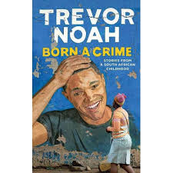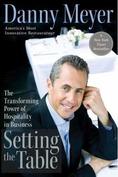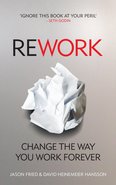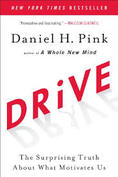We have priced these books at slightly above what we could find them for delivery in China. We will not make any profit off the sales of these books; everything above our cost to ship will be donated to LifeLine Shanghai. Please note, electronic copies are available for significant discounts, please contact us at info@olivar-greb.com to enquire.
LifeLine is a non-profit, volunteer organization that is the only English speaking hotline for foreigners in emotional or mental distress in China. Visit the site here to chat, or call (021) 6279 8990.
The O&G Book Club:
Buy Books on Our Bookshelf:
All proceeds go to non-profit organizations
The Intelligent Investor, by Benjamin Graham
The greatest investment advisor of the twentieth century, Benjamin Graham, taught and inspired people worldwide. Graham's philosophy of "value investing" -- which shields investors from substantial error and teaches them to develop long-term strategies -- has made The Intelligent Investor the stock market bible ever since its original publication in 1949.
Over the years, market developments have proven the wisdom of Graham's strategies. While preserving the integrity of Graham's original text, this revised edition includes updated commentary by noted financial journalist Jason Zweig, whose perspective incorporates the realities of today's market, draws parallels between Graham's examples and today's financial headlines, and gives readers a more thorough understanding of how to apply Graham's principles.
Vital and indispensable, this HarperBusiness Essentials edition of The Intelligent Investor is the most important book you will ever read on how to reach your financial goals.
Debt: The First 5,000 Years, by David Graeber
Graeber shows that arguments about debt and debt forgiveness have been at the center of political debates from Italy to China, as well as sparking innumerable insurrections. He also brilliantly demonstrates that the language of the ancient works of law and religion (words like “guilt,” “sin,” and “redemption”) derive in large part from ancient debates about debt, and shape even our most basic ideas of right and wrong. We are still fighting these battles today without knowing it.
Sapiens: A Brief History of Humankind, by Yuval Noah Har
New York Times Bestseller
From a renowned historian comes a groundbreaking narrative of humanity’s creation and evolution—a #1 international bestseller—that explores the ways in which biology and history have defined us and enhanced our understanding of what it means to be “human.”
One hundred thousand years ago, at least six different species of humans inhabited Earth. Yet today there is only one—homo sapiens. What happened to the others? And what may happen to us?
Most books about the history of humanity pursue either a historical or a biological approach, but Dr. Yuval Noah Harari breaks the mold with this highly original book that begins about 70,000 years ago with the appearance of modern cognition. From examining the role evolving humans have played in the global ecosystem to charting the rise of empires, Sapiens integrates history and science to reconsider accepted narratives, connect past developments with contemporary concerns, and examine specific events within the context of larger ideas.
Dr. Harari also compels us to look ahead, because over the last few decades humans have begun to bend laws of natural selection that have governed life for the past four billion years. We are acquiring the ability to design not only the world around us, but also ourselves. Where is this leading us, and what do we want to become?
Featuring 27 photographs, 6 maps, and 25 illustrations/diagrams, this provocative and insightful work is sure to spark debate and is essential reading for aficionados of Jared Diamond, James Gleick, Matt Ridley, Robert Wright, and Sharon Moalem.
Beating the Street, by Peter Lynch
An important key to investing, Lynch says, is to remember that stocks are not lottery tickets. There’s a company behind every stock and a reason companies—and their stocks—perform the way they do. In this book, Peter Lynch shows you how you can become an expert in a company and how you can build a profitable investment portfolio, based on your own experience and insights and on straightforward do-it-yourself research.
In Beating the Street, Lynch for the first time explains how to devise a mutual fund strategy, shows his step-by-step strategies for picking stock, and describes how the individual investor can improve his or her investment performance to rival that of the experts.
There’s no reason the individual investor can’t match wits with the experts, and this book will show you how.
The Prize, by Daniel Yergin
Founded in the 19th century, the oil industry began producing kerosene for lamps and progressed to gasoline. Huge personal fortunes arose from it, and whole nations sprung out of the power politics of the oil wells. Yergin's fascinating account sweeps from early robber barons like John D. Rockefeller to the oil crisis of the 1970s, through to the Gulf War.
For Good and Evil: The Impact of Taxes on the Course of Civilization, by Charles Adams
- Lucy Heckman, St. John's Univ. Lib., New York
Reminiscences of a Stock Operator - Edwin Lefevre
- Analyzes legendary trader Jesse Livermore's strategies and explains how they can be used in today's markets
- Provides factual details regarding the actual companies Livermore traded in and the people who helped/hindered him along the way
- Explains the structure and mechanics of the Livermore-era markets, including the bucket shops and the commodity exchanges
- Includes more than 100 pages of new material
Reminiscences of a Stock Operator has endured over 70 years because traders and investors continue to find lessons from Livermore's experiences that they can apply to their own trading. This annotated edition will continue the trend.
Business Adventures: Twelve Classic Tales from the World of Wall Street, by John Brooks
What do the $350 million Ford Motor Company disaster known as the Edsel, the fast and incredible rise of Xerox, and the unbelievable scandals at General Electric and Texas Gulf Sulphur have in common? Each is an example of how an iconic company was defined by a particular moment of fame or notoriety; these notable and fascinating accounts are as relevant today to understanding the intricacies of corporate life as they were when the events happened.
Stories about Wall Street are infused with drama and adventure and reveal the machinations and volatile nature of the world of finance. Longtime New Yorker contributor John Brooks’s insightful reportage is so full of personality and critical detail that whether he is looking at the astounding market crash of 1962, the collapse of a well-known brokerage firm, or the bold attempt by American bankers to save the British pound, one gets the sense that history repeats itself.
Five additional stories on equally fascinating subjects round out this wonderful collection that will both entertain and inform readers . . . Business Adventures is truly financial journalism at its liveliest and best.
Extraordinary Popular Delusions and the Madness of the Crowd, by Charles MacKay
The Elements of Power: Gadgets, Guns, and the Struggle for a Sustainable Future in the Rare Metal Age, by David Abraham
Abraham traces these elements’ hidden paths from mines to our living rooms, from the remote hills of China to the frozen Gulf of Finland, providing vivid accounts of those who produce, trade, and rely on rare metals. He argues that these materials are increasingly playing a significant role in global affairs, conferring strength to countries and companies that can ensure sustainable supplies.
Just as oil, iron, and bronze revolutionized previous eras, so too will these metals. The challenges this book reveals, and the plans it proposes, make it essential reading for our rare metal age.



